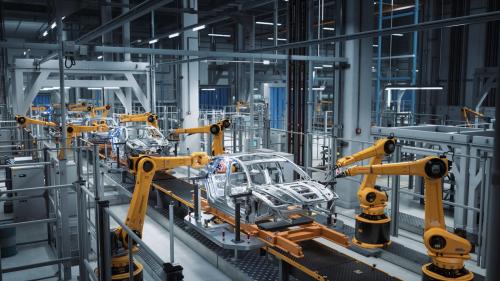*A slightly modified version of this commentary appeared in The Springfield News-Leader on October 24, 2004.
The Missouri gubernatorial race is going down to the wire, and guess what? Contentious social and moral issues are predominating.
Last week Republican Matt Blunt questioned McCaskill’s values, saying his stand against gay marriage matched the values of mainstream Missourians.
For her part, McCaskill, the Democratic state auditor, has parried Blunt on gays, guns, and abortion by insisting that Republicans don’t have a lock on values just because Democrats like her don’t wear religion on their sleeves.
Look for more sniping on gays, guns, and abortion as the campaigns careen toward election day.
Which would be too bad.
Missouri—and particularly the Springfield region—needs to talk about some other things this fall.
In a major statewide report, “Growth in the Heartland: Challenges and Opportunities for Missouri,” after all, we argued that Missouri today faces an outright land-use, environmental, and competitive crisis that has little to do with gay marriage or concealed-carry gun rules.
The crisis is not new—we described it two years ago—but the fact remains that Missouri’s chaotic style of low-density development is gobbling up the state’s rural heritage, gutting towns and cities, and exacting a heavy toll on Missourians’ pocketbooks and quality of life just when the state needs to compete at a higher level on exactly those factors.
Just look around the Springfield area:
Forty-five percent of the region’s growth in the 1990s took place in the unincorporated “open country,” the exurban places often least equipped to manage it.
Strip malls and home sites are chewing up the region’s beautiful Ozarks scenery.
And all the while newcomers are flocking to small outlying towns like Willard, Republic, Clever, Niza, and Ozark—all of which hit “hypergrowth” in the 1990s and struggle to keep up.
As to the results, they have been predictably mixed: New jobs and vitality have been accompanied by the water-quality problems that have fouled Lake Taneycomo and Table Rock Lake. Taxes are increasing as local governments strain to provide the necessary roads, services, or sewer hook-ups. And with more sprawl coming, more traffic and mini-malls could soon undercut the region’s reputation as the quaint heartland of rural America.
Why do these trends matter? For some the concern is cultural. They fear the state is losing its rural heritage. For others the threat is environmental. They are disturbed by the degradation of the Ozark lakes and other nearby natural areas.
However, for us the concern is mostly economic: By remaining virtually laissez faire on growth and development issues, we fear the Show Me State is undercutting its ability to parlay its very real assets into a broader prosperity.
Spread-out development patterns, for example, raise costs in the state for businesses and individual taxpayers. That’s because highly dispersed development often increases the capital and operations costs of roads, sewer lines, schools, and police or fire services.
Similarly, Missouri’s dispersed development adds to the size of the state’s enormous—and crumbling—highway system. Missouri taxpayers consequently struggle with a maintenance backlog that will require half a billion dollars a year over the next 10 years—some $200 million more than current finding will provide.
And likewise, we suspect that the state’s spread-out, low-quality development diminishes Missouri’s appeal to highly educated workers—that critical factor if the state is going to appeal to entrepreneurs, well-educated retirees, and leading-edge techies and scientists.
This is especially important in the Springfield region, where the recent boom has clearly been built on the appeal of the region’s improving downtown and cultural facilities, high quality of life, and stunning natural beauty.
And so we say it again—Missouri and the gubernatorial candidates need to face up to some tough realities this fall:
- Missouri can’t afford to keep sprawling, even with tax revenues stronger this year. So Blunt and McCaskill need to tell Missourians how they will foster more efficient, less chaotic growth that doesn’t break the bank
Or take the highway issue: Notwithstanding rural pleas for new blacktop, Missouri can’t afford to keep building new roadways as it tries to dig itself out of the maintenance hole it’s paved itself into. Blunt and McCaskill should also say how they will modernize the state’s flagging transportation system while aligning it with the principles of sound land-use and fiscal sanity
And what about the whole connection of economic energy to strong cities and higher education? Growth now depends on brainpower and quality of life. For that reason, the candidates owe it to Missourians to detail how they will bolster the quality and accessibility of Missouri’s colleges and universities, given the state’s inadequate state fiscal system. And they should likewise explain how they plan to revive the state’s flagging town and city centers both for the benefit of residents and to attract and retain the best and the brightest for the future
Missouri, in sum, stands at a crossroads.
Other heartland states, like Michigan and Pennsylvania, now recognize the links between educated workers, strong urban and rural centers, and economic competitiveness—and are taking action. Missouri needs to face up to the challenge.
Similarly, other states are moving to reap the fiscal benefits of nudging development into more sensible patterns, so Missouri should think about that too.
As to the agitations of wedge issues like abortion and concealed weapons or gay marriage, Missourians should take them in stride. “Values” are important, sure, but at the same time, there’s a land-use and competitive crisis underway in Missouri that both the candidates and voters ignore at their peril this election.
The Brookings Institution is committed to quality, independence, and impact.
We are supported by a diverse array of funders. In line with our values and policies, each Brookings publication represents the sole views of its author(s).



Commentary
Op-edMissouri Needs to Focus
October 24, 2004